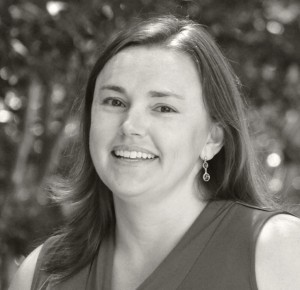New study explores unique ethical challenges of early-phase HIV cure research
October 17, 2017
A new study examines the ethics of early-phase HIV cure research, which presents ethical challenges because it poses high risks for research participants in the hopes of achieving a great reward.

Dr. Asheley Cockrell Skinner

Dr. Sandra Greene

Dr. Karine Dubé
Karine Dubé, DrPH, research assistant professor with the Public Health Leadership Program in the UNC Gillings School of Global Public Health, is first author of the study. Other co-authors from the Gillings School include Sandra B. Greene, DrPH, Professor of the Practice of health policy, and Asheley Cockrell Skinner, PhD, adjunct associate professor, both in the Department of Health Policy and Management.
The full article on their findings, titled “Perceptions of Equipoise, Risk-Benefit Ratios, and ‘Otherwise Healthy Volunteers’ in the Context of Early-Phase HIV Cure Research in the United States: A Qualitative Inquiry,” was published online Oct. 6 by the Journal of Empirical Research on Human Research Ethics.
“Early-phase HIV cure research is unique because it is conducted against a background of highly effective antiretroviral therapy,” Dubé said. “In other words, finding cures involves introducing risky interventions with individuals who are enjoying an almost normal life expectancy.”
In 2015, the Food and Drug Administration (FDA) put an HIV cure study on clinical hold after determining that it represented unacceptable risks in people living with HIV who were ‘otherwise healthy.’ Dubé and her colleagues examined that case, which involved a compound called Panobinostat, to gather lessons learned from the field and to help define criteria for evaluating the ethical permissibility of future HIV cure studies.
The researchers also conducted 36 in-depth interviews with three types of key stakeholders involved with HIV cure research, including people living with HIV, biomedical HIV cure researchers and policymakers/regulators/bioethicists. In these interviews, the study team explored three ethical concepts relevant to finding a cure for HIV infection: 1) equipoise, 2) risk-benefit ratios and 3) the notion of ‘otherwise healthy volunteers.’
With equipoise, they found that interviewees varied in their definitions and perceptions of the term. (In research, the concept generally relates to whether medical experts have genuine uncertainty about whether one possible treatment would be more beneficial for a patient than a different treatment. If an expert believes one course of action is superior, some feel that there follows an ethical imperative to recommend that treatment.) In Dubé’s study, while the interviewees held differing views on what role equipoise should hold in HIV cure research, they largely agreed that the concept applies only to later-phase clinical trials.
The study found no clear measure of risk-benefit ratios in HIV cure research, primarily because it is difficult to weigh risks to participants with speculative benefits to science and society.
Finally, while the current FDA policy is to view people living with HIV as ‘otherwise healthy volunteers,’ most of the interviewees living with HIV revealed that they did not perceive themselves as such.
“We need to make sure that HIV cure research does not create undue vulnerabilities in people living with HIV,” Dubé said. “There needs to be more rigorous social sciences and empirical bioethics research in the field of HIV cure, together with ongoing dialogue between key stakeholders – especially people living with HIV – to inform the development of best practices for conducting such research. There also is a need for practical, applied ethics to help support people living with HIV who feel a desire to provide meaningful input on HIV cure science.”
“I believe the impact of our findings extends beyond the field of HIV cure research, and even beyond HIV,” added Greene. “For example, there is a burgeoning body of research and clinical trials around oral immunotherapy for children with severe, life-threatening peanut allergies. During attempts to recruit ‘otherwise healthy patients’ to those trials, researchers also must be sensitive to the ethics of trading the known, safe strategy of total avoidance for the possibly risky process of gradual desensitization.”
The researchers suggested several next steps based on their findings, including enhanced efforts to educate potential HIV cure study participants about possible risks and benefits, and developing standard best practices for all HIV cure research.
Gillings School of Global Public Health contact: David Pesci, director of communications, (919) 962-2600 or dpesci@unc.edu
